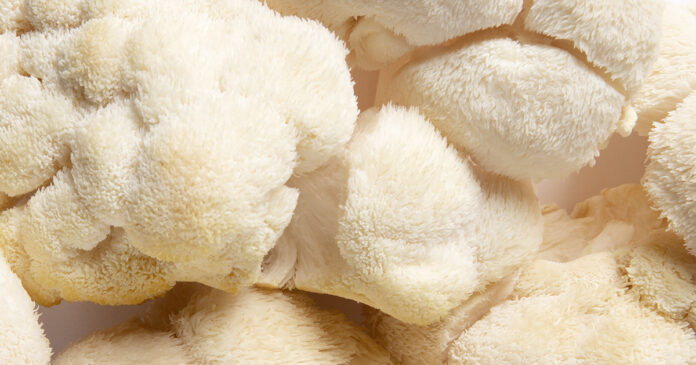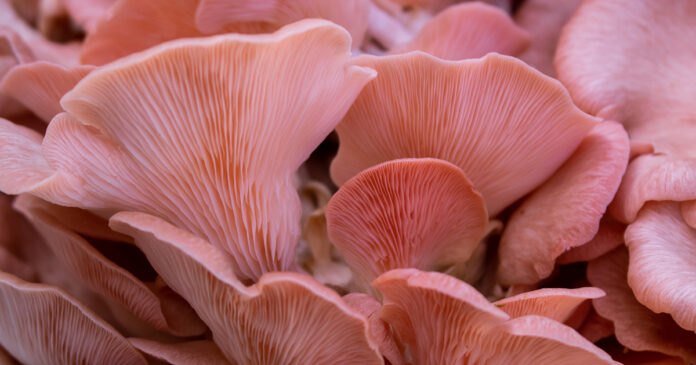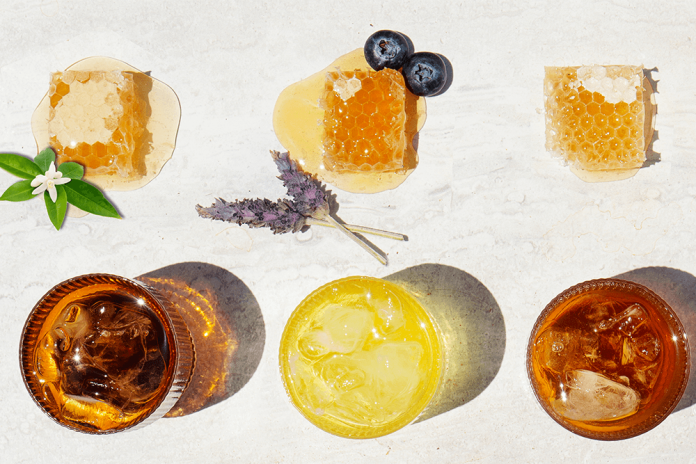You may not know it, but if you drink tea, you’re already well-acquainted with tannins.
But, while these astringent and bitter-tasting compounds are quite common in tea and other foods and beverages, there’s plenty of confusing information floating around about them.
They’re associated in studies with the health benefits of tea, but can also cause unwanted side effects. (1)
Tannins lend interesting textures and flavors to tea, but can also make tea disgusting or even undrinkable in high concentrations.
They’re a little bit complicated, but we’ve gathered everything you need to know about tannins in tea, including basic facts, the tannin content of tea and the factors that affect it, health benefits, and negative effects of consuming tannins.

What are Tannins in Tea?
Tannins are a type of natural plant compound that belongs to the polyphenol class of antioxidants. (2)
According to research, there may be over a dozen tannins in Camellia sinensis (the tea plant), and not all of them are well-understood.(https://www.ncbi.nlm.nih.gov/pmc/articles/PMC6259616/)
There’s some disagreement among researchers as to exactly which molecules count as tannins — some scientists consider tea catechins like EGCG to be tannins, while others don’t. (3)(4)
Camellia sinensis isn’t the only plant that produces tannins. Other common sources of tannins include herbs, spices, nuts, seeds, coffee, red wine, and chocolate. (5)
Wherever they’re found, tannins contribute bitterness and astringency (the drying, puckering mouth sensation you may associate with unripe fruits and with some teas). (6)
All About the Tannin Content of Tea
The Camellia sinensis plant produces tannins for two main reasons: as a way to regulate growth and as a natural deterrent to pests. (7)
As a result, tea plants grown under different conditions can have significantly different tannin concentrations.
But before we dive into the factors that affect tannin content, it’s important to understand the role tannins play in the experience of drinking tea.
From the perspective of tea quality and enjoyment, people sometimes assume that low-quality teas are high in tannins and vice versa. However, this is not always the case.
While cheap tea (such as grocery store tea bags) is often overly bitter and astringent, plenty of high-grade teas have bitter and astringent qualities, too. Rather, what’s most desirable is a balance between tannins and other flavor compounds that results in a delightful tea.
Also, tannins aren’t uniform in their taste or effects on mouthfeel. The effects of specific combinations of tannins on the tea-drinking experience are complex and varied, so their contributions to flavor and texture profiles are about more than just the overall tannin content of a tea.
So ultimately, you’ve got to trust your palate and taste preferences. If you detect bitterness or astringency in a given tea, you’re likely picking up on tannins, but it’s entirely up to you to decide how you like the experience (or not).
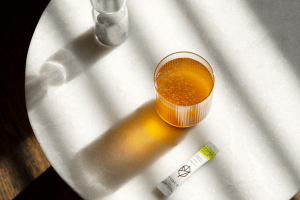
Factors That Reduce or Increase Tannin Content
Tea Type and Processing
In one study, the total tannin content of green tea was highest, white tea was 21% lower, and black tea was a dramatic 87% lower. (8)
Evidence suggests that as polyphenols break down in black tea processing during oxidation, they also become less astringent compared to tannins in other types of tea. (9)
Temperature and Steep Time
Higher temperatures and longer steep times extract more tannins from tea leaves, contributing greater bitterness to tea, while less heat and less time steeping result in a smoother drinking experience.
Plant Age and Leaf Maturity
Because tannins play a role in growth, fast-growing young tea plants and immature tea leaves tend to have a higher tannin content and more astringency. (10)
Altitude
According to some evidence, tea from high-altitude plants may have lower tannin content, while low-altitude plants appear to produce higher levels of tannins. (11)
Teaware Materials
One study concluded that unglazed Yixing clay teapots may reduce the bitterness of oolong tea by decreasing the tannin content of the tea liquid. (12)
These results should also apply to other types of tea, and you can try experimenting with less costly unglazed clay cups if traditional Yixing pots are out of your price range.
What are the Health Benefits of Tannins?
Tannins are a type of polyphenol with antioxidant activity, which is why they are very likely responsible for some of the health benefits of drinking tea.
According to a scientific review examining tannins and human health, these compounds appear to contribute by supporting cellular health, supporting heart health, supporting healthy blood pressure, and supporting healthy cholesterol levels. (13)
What are the Side Effects of Tannins?
Perhaps the most common side effects from over-consuming tannins are upset stomach and nausea. These unpleasant effects are most likely to occur when drinking strong tea on an empty stomach, so consider eating a snack first if you’re prone to feeling sick from strong tea.
But even though they can cause discomfort, tannins don’t appear to be harmful to your stomach or digestive system. Actually, according to some scientific research, the astringent properties of some types of tannins may help support gut health. (14)
Tannins can also act as antinutrients that reduce the absorption of some nutrients your body needs. (15)
Specifically, research has shown that tannins can reduce the absorption of iron when consumed around mealtime. (16) That said, the evidence doesn’t suggest that people who drink tea or eat tannin-rich foods are more likely overall to develop iron deficiencies — so unless you already have an iron deficiency, there’s probably not much reason for concern.
Tannins may reduce the absorption of some medications. If you take any prescription medications, take them with a glass of water, not tea, and wait a few hours before or after drinking tea.
According to the National Institutes of Health, tannins or other green tea compounds may increase levels of nadolol (a beta blocker used for high blood pressure and some heart problems), so be sure to ask your doctor before drinking tea if you take this medication. (17)
Finally, some people claim that tannin in tea causes headaches, but there’s currently no evidence to suggest this is the case. If you notice that you experience headaches when drinking tea, you can always try cutting back or switching to a different type, but it would appear unlikely that tannins are the culprit.
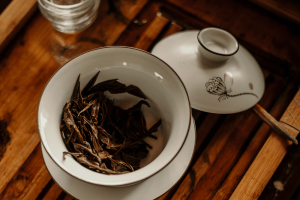
What Teas Have No Tannins?
Tannins are found in many different plants, so they’re difficult to avoid. There’s a myth that herbal tea doesn’t contain tannins, but published scientific papers refute this notion. (18)
And analytical data on the exact amounts of tannins in the many different types of tea and herbal tea is essentially nonexistent, so your best bet for avoiding tannins is to rely on your extremely sensitive taste buds. If you can’t detect bitter notes and there’s no astringent mouthfeel, it’s safe to say your beverage is relatively low in tannins.
If you dislike bitterness or astringency but still want to drink a Camellia sinensis tea, black tea steeped at lower than boiling temperature for 1-2 minutes should be an excellent choice.
Final Thoughts
Although the science of tannins may be complicated, the practical takeaways for tea-drinkers are pretty simple.
First of all, tannins appear to be good for you, but consuming too much can lead to an upset stomach. And tannins may interfere with some medications, so be sure to ask your doctor about drinking tea if you take prescription medications.
Second, if you want to reduce the tannin content of any tea, try steeping it for less time or at a lower temperature. And if you would like to cut back even further, try switching to black tea.
Finally, notice your taste preferences and how your body responds to drinking tea. If you don’t enjoy the way your cup of tea tastes or don’t feel well after drinking tea, change the way you prepare it or try another variety.


